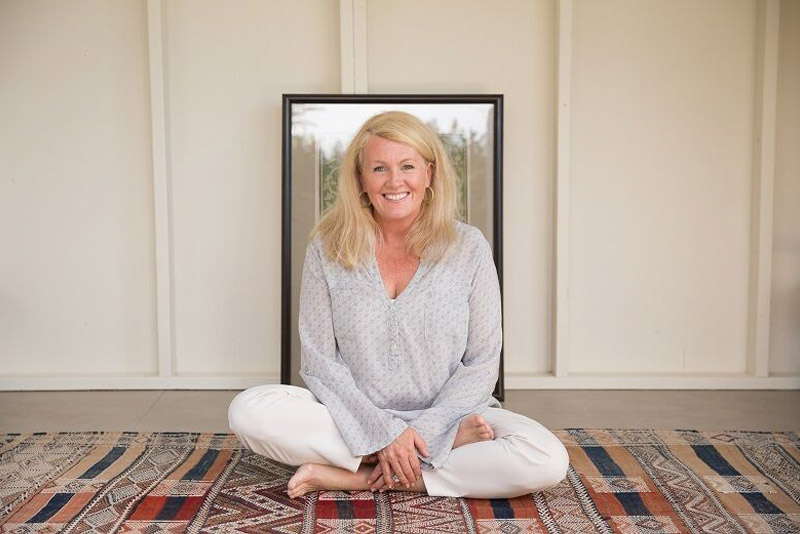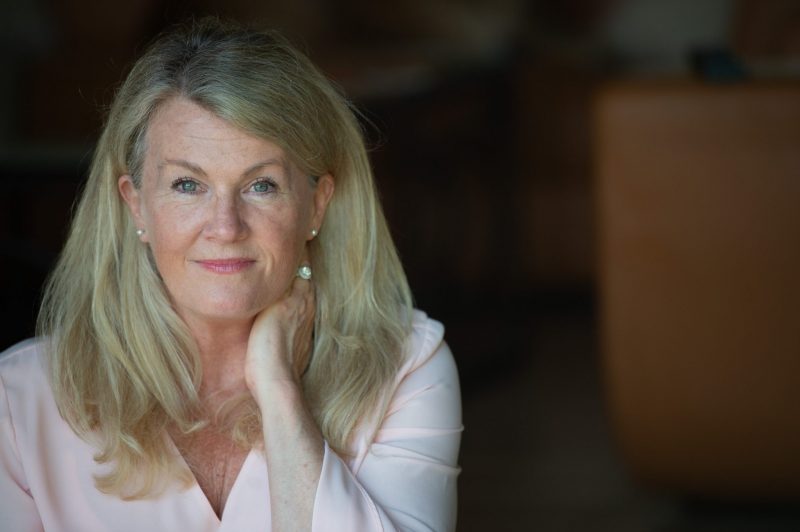Making Decisions Using Your Intuition: Listen to Your Yum & Yuck

Making Decisions Using Your Intuition: Listen to Your Yum & Yuck
Novelist Tom Robbins wrote that there are really only two mantras in life: “yum” and “yuck”. Either something is yummy or it isn’t. Listening to your own yums and yucks – and taking action based on this basic information – may sound pretty simple but many people complicate it.
When we’re faced with a choice and are trying to determine the best course of action, it’s an important moment. There are countless numbers of these little moments. As mindfulness teacher, Jon Kabat Zinn has said, “The little things? The little moments? They aren’t little.” A seemingly insignificant choice may change the course of our lives. We can opt to choose a momentary pleasure or take the path toward long-term fulfillment. It may be hard to know which choice leads to what.
You’ve heard the saying, hindsight is 20/20. When you look back on your life, you can probably identify a few moments that changed the course of your life, and the choice you made was clearly one that ignored your inner knowing. I know I have. I asked two women friends about their experiences with intuition: “Was there ever a time when your intuition clearly said ‘no’, but you said ‘yes’ anyway?” Coincidentally, each said they’d heard a ‘no’ while walking down the aisle to be married. They said ‘yes’ anyway, because, at that time, it was easier. Both have divorced their husbands and are now living happier lives. They now are committed to listening to their intuition.
Steve Jobs is quoted as saying, “Again, you can’t connect the dots looking forward; you can only connect them looking backwards. So you have to trust that the dots will somehow connect in your future. You have to trust in something – your gut, destiny, life, karma, whatever. This approach has never let me down, and it has made all the difference in my life.”
Whether you use your intuition or not, you have it. Everyone does. Albert Einstein said that it’s the only real valuable thing! The word intuition is derived from the Latin intuitio which means seeing within. However, intuition isn’t always about seeing with your mind’s eye, some people “hear” their internal wisdom as a whisper or firm inner voice. There are others who feel a physical response to a question or a choice.
Sometimes intuition is communicated through clues – such as a song on the radio, the appearance of a bird or butterfly, or something someone casually says to you in a conversation. I like to think that the whole universe is conspiring to enlighten us! When we follow the clues, they can lead us on a more evolutionary path, or at the very least, a path that navigates us away from pain or danger. We simply have to tune in, be present, and notice the subtle signs that catch our attention.
Although intuition is always available, we often don’t pay attention to it. We don’t heed it. We somehow think we know better! Intuition can also be masked by habitual reactions to recurring situations, or unexamined habits of mind such as not trusting ourselves. Its wisdom can be overrun by our ego too – which operates by wanting to be in control and powerful. It’s difficult to tell what is what sometimes.
It’s said we have about 60,000 thoughts a day – the shoulds and shouldn’ts, thoughts of the past, projections into the future, and the drone of the promises carried to us by the media, “Buy this,” or “Do it this way and you’ll be happier.” These thoughts and programming can shroud our intuition. And instead take what seems to be the path of least resistance, so we override the inner knowing in lieu of a choice that seems to provide temporary satisfaction, or that “just makes it easier for now.”
With practice, it’s possible to tune in to your inner wisdom and distinguish it from our own thinking process. Intuition isn’t emotional, instead, it’s a clear and sometimes emphatic communication. It’s not controlling or hysterical. Logic, control, emotionalism, and rationality are aspects of the mind, whereas intuition is a wise, steady communication of the soul.
Meditation can help you to tune in as it helps to drown out the unimportant noise, and connects you to your interior wisdom. A regular meditation practice truly “cleanses the doors of perception,” if I may borrow William Blake’s words. It helps to alleviate the stress and the mind’s agitation, so you can settle down and tune in.
Sages who meditated daily in ancient times (and some of us today) had very sensitive nervous systems. Sensitivity and silence are important benefits of meditation. Both help us to tune into intuitive intelligence – which sages call ‘intelligence-loving- wisdom which interconnects all beings’. The Sanskrit term for this is buddhi, which describes our true wisdom as distinguished from the mind, intellect, and ego. Buddhi is closely aligned with omniscience: “knowing all things at once; a universal knowledge; holistic, compassionate, unbounded and infinite.”
As you become more attuned to subtleties and become more sensitive, you can then hear the whispers of your soul. These whispers are not usually heard in meditation, instead, they are made apparent as you walk through your daily life. That’s why you have to be mindful and attentive, maintaining present moment awareness. It’s in the present that you will be clear, less distracted, and clear.
Once you’ve become accustomed to the language of your personal intuition, you can then learn to trust it by following its wisdom. This takes practice. It’s like finally trusting your GPS to take you where you want to go. (I now call intuition my PGS, my personal guidance system.)
By listening to our intuition, and aligning every choice we make with it, we can find our way to a life that is more authentic and fulfilling. It can be as easy as listening to the ‘yums’ and ‘yucks’.
Bill Gates says, “Sometimes, you have to rely on intuition.” Oprah Winfrey says, “My business skills have come from being guided by my inner self — my intuition.” Donald Trump says, “I’ve built a multi-billion empire by using my intuition.”
Here are some easy steps to enhance your intuition for a fulfilling life:
1. Meditate. Meditation quietens the mind and expands your awareness. Both are necessary to go beyond the mental constructs and the ego that want to control your decisions. It is said meditation cleanses the doors of perception – a heightened perception can serve to help you hear the subtleties of your intuition.
2. Ask yourself questions before making a choice: What do I need to know? What’s the best decision for me? Then be open to discovering your answer in unexpected ways. Some people like to ask questions before going to sleep. They then pay attention to the first impressions right after waking up – so their intuition can be heard before the mind chatter kicks in. You might do it as you go for a walk, or before you meditate.
3. Pay attention to what catches your eye or ear. Or what you physically feel. Sometimes we get information by things ‘out there’, coincidences or signs if you will. Honor your way of perceiving. Realize that everyone has a unique way they perceive their wisdom.
4. Edit your editors – all of them: the ones ‘out there’ and the ones in your head. We often count out most intuitive hunches before we fully consider them. Or an intuitive thought comes in and we immediately tell ourselves we’re wrong. Be open, and listen to YOU. Stop saying “I don’t know.” Follow your own intuition about your life – not someone else’s.
5. Listen to your body. A tightening of your stomach, a sick feeling, a sour taste in your mouth, or feeling a bit clumsy while moving can be indicators of things not being right for you – a ‘yuck’ or “no.” Expansion or easiness or a sense of calm indicates a “yum.” Some people even count on their body to help them make the best choices through a practice called muscle testing. Your body doesn’t lie.
What if you listened, truly listened, and then followed your inner wisdom, how might your life be different today? What about going forward? Can you commit to honor yourself in this way? I hope so!
Sarah McLean
Sarah McLean is an acclaimed teacher and thought leader who is determined to create more peace on this planet by helping people wake up to the wonder and beauty of their lives and the world around them through the practices of meditation and mindfulness. She inspires audiences everywhere blending the spirit of Zen wisdom with Vedic knowledge and self-inquiry. She helps demystify meditation and makes it accessible to anyone. It was over 30 years ago when she began her daily meditation practice, and moved in to a Transcendental Meditation community. There, she received advanced training in meditation and studied Ayurveda. Since 1993, when she became the education director for Deepak Chopra’s Center for Mind Body Health, she's been teaching contemplative practices and mind/body health. In 1997, she went to India to live in a traditional ashram in India, When she returned to the States, spent two years as a resident trainee in a Zen Buddhist monastery. She fell in love with Self-inquiry and served as the director of Byron Katie's School for the Work. In 2012, she founded the McLean Meditation Institute, home of the Meditation Teacher Academy which certifies meditation and mindfulness teachers through its 300-hour teacher training program. Her bestseller, Soul-Centered: Transform Your Life in 8 Weeks with Meditation, and her most recent book, The Power of Attention: Awakening to Love have received rave reviews. She now lives in Santa Barbara, California where she trains meditation teachers and offers online classes and lives a life she loves.






